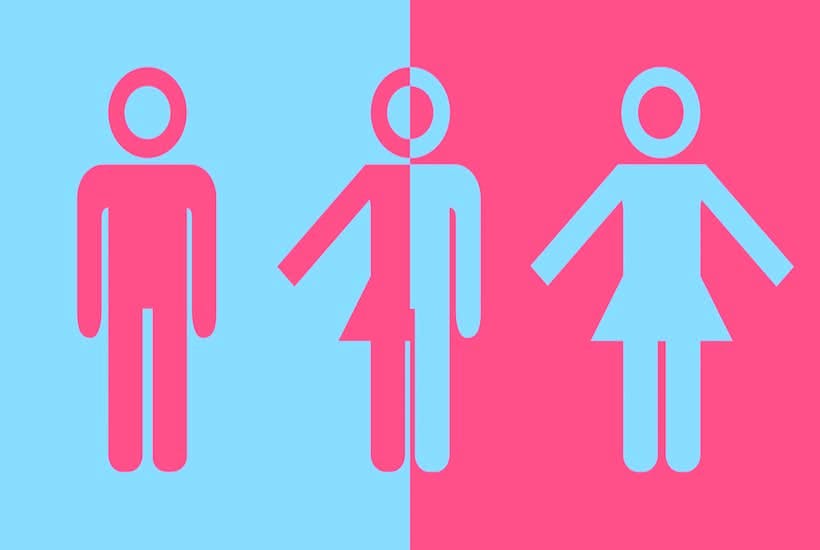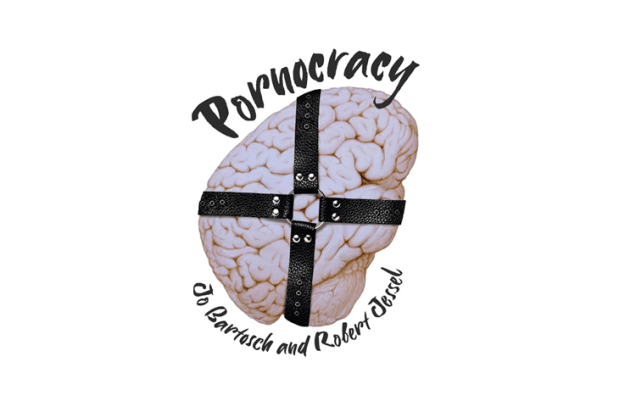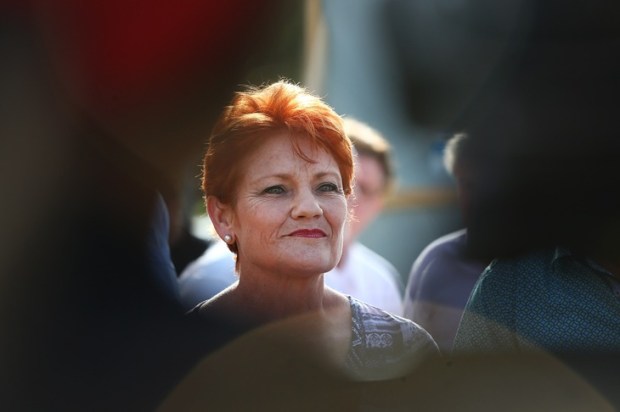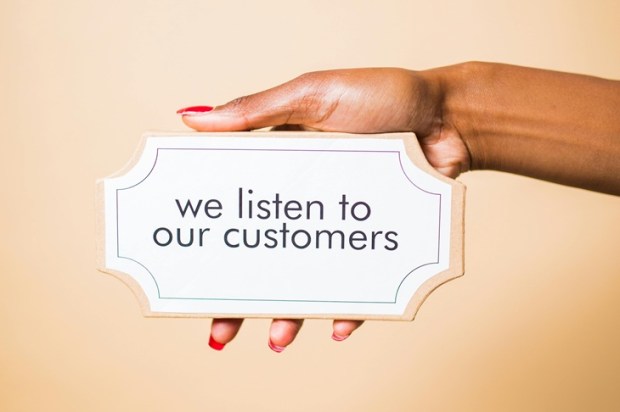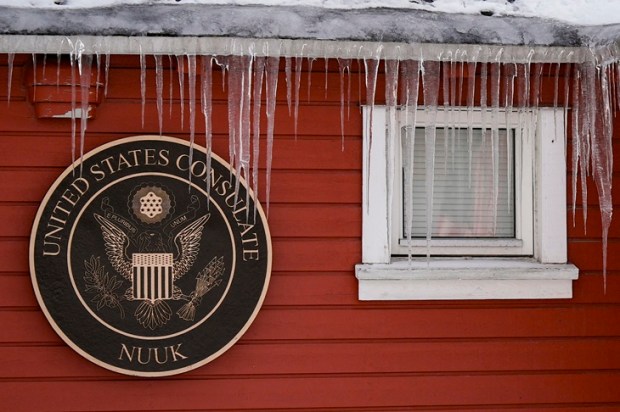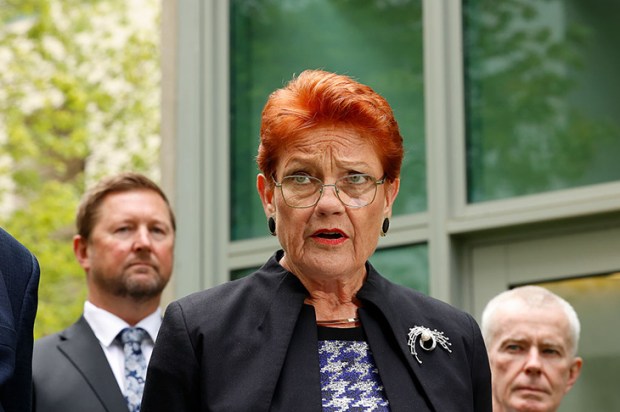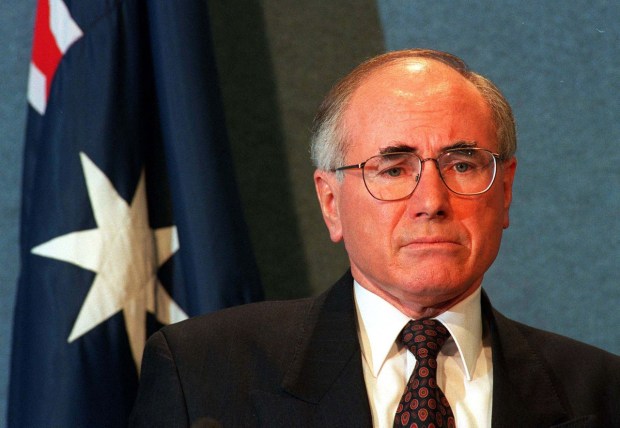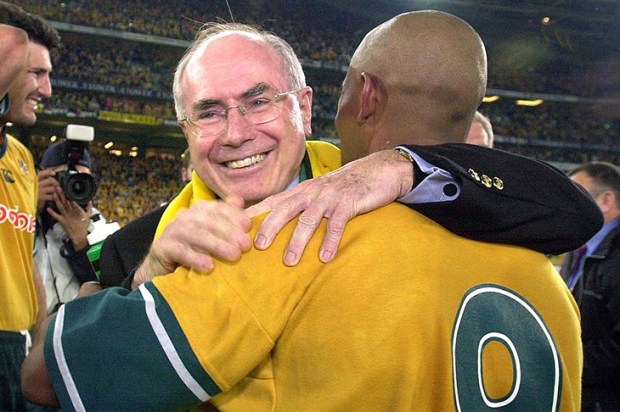The court of review in Britian last week set aside the 2020 Bell Vs Tavistock Divisional Court decision that persons under 16 were unlikely to be able to consent to the use of puberty blockers in the treatment of gender dysphoria. The overturning of the decision was not a ruling on the competency of a child to consent to puberty blockers, but on the appropriateness of a court of law to mediate in this area. Advocates for the chemical interruption of puberty for the treatment of “gender dysphoria” in children are cheering the win for diversity and inclusion, but the decision reads far more like a court washing its hands than validation of existing treatments for gender dysphoria.
The UK Court of Appeal found that that “Medical opinion is far from unanimous about the wisdom of embarking on treatment [of puberty suppression] before adulthood. The question raises not only clinical medical issues but also moral and ethical issues, all of which are the subject of intense professional and public debate”. The court encouraged people who felt they had been harmed by medical treatment for gender dysphoria, to take a regulatory or civil action against doctors and hospitals directly.
The initial 2020 Bell Vs Tavistock decision will remain a landmark for its debunking of the myth that puberty blockers act as a “pause button”. The evidence presented to the court demonstrated that almost all of the children who were prescribed puberty blockers to treat gender dysphoria, went on to take cross-sex hormones, not pausing but stopping puberty and the body and brain development that puberty brings.
The full benefits of puberty have not been adequately studied, because no other generation in history has offered its children an escape from anxiety, distress, sexual oppression and in some cases homosexuality, through the halting of puberty and the myth that they can change sex. The court said that “it is right to call the treatment [with puberty blockers] experimental”, and that giving blockers to children had long term and “life-changing” effects.
Bell Vs Tavistock, more than anything, is a story of a young girl who was caught up in an ideology that she could escape the kind of pain that being a poor girl so often brings. Keira Bell is left with a permanently masculinised presentation, has had a double mastectomy and may not be able to have children. Thankfully her puberty was already well underway when she began the puberty blockers at 16. Some children are being started on puberty blockers before they are ten. Keira has said that “There was nothing wrong with my body, I was just lost and without proper support. Transition gave me the facility to hide from myself even more than before. It was a temporary fix if that”.
Internationally many counties are moving away from the “gender affirmation model” for the treatment of gender dysphoria, and its reliance on puberty blockers. Gender affirmation is the practice of affirming the child in their chosen gender, and critically requires widespread social engagement and restructuring of beliefs in human sex and gender. My opinion is that the political investment in the later has led to inappropriate activism for the former.
There is a widescale move back to the use of psychotherapy for the treatment of gender dysphoric children, most notably in Sweden and Finland. Therapists using the kind of psychotherapy employed in the “watchful waiting” approach in Australia are worried they will fall shy anti-conversion therapy laws. Anti-conversion therapy laws have been enacted in Victoria and Queensland that prohibit the attempted conversion of individuals on the basis of gender identity, pushing Australian children into a medicated path that other countries are now abandoning.
Debate on the issue of transitioning minors in Australia has been stifled by aggressive cultural environment, spearheaded by our beloved Auntie, the ABC. The ABC has failed to cover the Keira Bell story and actively decried more critical analysis on the issue of puberty blockers. Journalist Bernard Lane has had a 42 page complaint lodged against him by gender clinic head Dr Michelle Telfer to the Australian Press Council, regarding his work in The Australian that has long been ringing alarm bells about transitioning minors. The complaint to the APC was hinted at in a saccharine assessment of the doctor’s work by ABC’s Australian Story.
The ABC originally referred to Telfers use of the affirmation model as “lifesaving treatment for hundreds of trans kids”. This seems to have changed to describe her as a “lifesaving advocate for hundreds of trans children”. Both statements are laden with uncritical and ideological bias on an issue of heated debate and public interest.
In a statement published by the ABC, Lane said that the affirmation model has been “spearheaded in Australia by Dr Telfer, as director of the country’s biggest and most influential children’s hospital gender clinic”. Telfer has also been instrumental in the 2018 “Australian standards of care” and is president of the gender clinicians’ group the Australian Professional Association for Trans Health. Lane rightly argues there is legitimate interest in this issue and in the work of Telfer with Australian children.
On the issue of the surge in transgender identification in young people, Lane had reported that “Clinicians are calling for an urgent national inquiry into the safety and ethics of giving unproven hormone drug treatment to ever younger children”. While on the same issue, the ABC reported that “advocates” were concerned that access to “hormone therapy is becoming increasingly difficult”. Lane’s story now comes with a warning about the complaint to the Australian Press Council, despite it raising clinician concerns and not activist concerns, and the concerns it contains being validated by a court of law in the Bell Vs Tavistock case and backed up increasingly by international research and clinical practice.
The entire narrative that underpins the justification for the “affirmation model”, the separation of parental consent from the treatment of children, and the silencing of debate, is that children will commit suicide if not “affirmed” in their gender with both drugs and surgeries. The evidence for this is not only not forthcoming, it is scarcely being sought.
In a recent report by Melbourne University on “National Suicide and Self-harm Monitoring Project” it was reported that no “information was reported for other population sub-groups including LGBTIQ+”. Sociologist, Dr Michael Biggs, of Oxford University has researched evidence in the reduction of suicide ideation following the use of puberty blockers, and has found often cited studies are based on scant evidence. Biggs has undergone new research indicating that suicide is actually much lower among trans-identified people than previously thought, but the interest in publishing the research is limited, for what seem to be political reasons.
This lack of evidence for the net benefit of drugs and surgery in the treatment of gender variance in children, stands against the consistently proven fact that the majority of gender non confirming children will desist and come to accept their birth sex with appropriate psychotherapy and “watchful waiting”. Many will continue to live in gender non-conformity, many will identify as gay or lesbian, but they can forge a path free of the kind of radical and experimental medication that is hand in glove with the affirmation model. Also, the “watchful waiting” method does not require the entirety of society to change their words and perceptions of reality.
The language, legislation, education and online hysteria that has been built around the affirmation model of transgender care, has led to a massive surge in transgender identifying young people in what has been labelled a “social contagion”, disproportionately affecting girls. A recent article in MedScape by Dr William Malone records that in 2014 in the USA adult gender dysphoria was as rare as 2-14 in 100,00, while “in 2017, 3-4 in 100 teens in the United States reported that they are or may be transgender”. One study of an urban district indicated that as many as 10% of children identified as gender diverse. On one level this makes sense, because colloquially we know that many of us, were masculine girls (tomboys) and effeminate boys. In isolation it is fine that children are embracing gender diversity. If these kids weren’t being fed into an industry where they were losing body parts, sexual function and fertility, I would not be even remotely interested in this phenomenon.
In what is a massive financial win for pharmaceuticals, it is estimated that over a million US children may soon be taking puberty blocking medication. Many of these children will become lifelong medical patients, simply because they didn’t conform to stereotypes. This industry is funded by huge medical insurance companies and ultimately the contributions of the working and middle-class people who are being called bigots if they don’t conform to the supporting humanities-based ideologies.
We first started to see the mainstreaming of these ideologies in Australia around 2016 with the push by the Australian Research Centre for Sex, Health and Society (ARCSHS) at La Trobe University for broad-based “sexuality” education in schools. Timothy Jones from the ARCSHS took aim at the “Christian Right” who were apparently “trying to turn queer kids straight”. Jones claimed that “family values” of Christians were out of date because 72% of Australians supported same-sex marriage. It hadn’t occurred to Tim that many Australians didn’t consider same-sex marriage the antithesis of family values.
The initial push for a new generation of “sexuality education” in Australia was inextricably linked the debate around changing the marriage laws. At the time we were being told that gay men would commit suicide if not validated by society. As someone who lost a beloved gay family member to suicide, this is not an issue I take lightly. But as the proud holder of a humanities degree, I questioned then as now, the use of American concepts of gender as a panacea for intolerance.
Opponents to the change of marriage laws in Australia took aim at the unpopular “radical gender theory“ in sexuality education, saying that same-sex marriage was a Trojan horse for the promotion of these programs. Roz Ward, from the ARCSHS and architect of the original “Safe Schools” program, fuelled conservative fears with the claim that up to “40-50 per cent of young people are not exclusively attracted to the opposite sex… that’s how fluid sexuality is headed.” Humanities departments steeped in queer theory were positioning themselves as “research-based” engines for modern sexual values to replace outdated and harmful Christian values.
Even though these ideas were uncritically adopted by the Australian cultural elite and progressive media, the sustained insistence that conservatives and Christians were killing gays with their values, seemed to bring suspicion from Australians, who are not overly religious but do not particularly enjoy a public lynching. The use of a banner by a protester at a Christian conference that read “burn churches, not queers” proved too radical for many.
The cautious approach that gay activists had used over years in gaining public support and acceptance, was thrown away by pushy and sometimes aggressive individuals who were caught on camera abusing conservatives and religious people. Activist Benjamin Law said that he would like to “hate f**k” the homophobia out of conservative MP’s. When it was suggested that MP Andrew Hastie would be the first on the list, Law tweeted “[sighs heavily, unzips pants].” Hastie, who is a handsome and impressively build ex-special forces veteran, retorted that he would like to see Law make the attempt.
Although the plebiscite was successful in bringing in same-sex marriage in Australia, LGBTIQ activism brought down the support for same-sex marriage from 72% to 61.6%. It was thought if the campaign had gone on much longer the margin would have narrowed further, simply on the basis of the behaviour of LGBTIQ activists.
The “Safe Schools” sexuality education programs proved spectacularly unpopular in Australia, leading to their scrapping and the departure of Ward from La Trobe in 2017. Without public support such programs have been implemented by stealth in guises of public health and the prevention of bullying and suicide. Further resistance to these programs has been depicted as intolerance, dangerous, right-wing and all the things that people are called when they refuse to bow to the wisdom and will of the new progressive intelligentsia.
The ARCSHS at La Trobe University have shown an ongoing and creepy obsession with childhood sexuality and gender. Between 2015 and 2018 School-based sexuality education was listed as part of their top stated objectives. Although this has dropped from the main objectives in 2019-2020, a search of their research indicates that studies into the sexuality of children is ongoing. Between 2015 and 2020 the Centre has received over AUD 33M in funding, the majority from taxpayers.
The number one stated aim of the ARCSHS, for at least the last six years, has been the wellbeing of LGBTIQ people. But the LGBTIQ movement should not be taken as representative for all gay, lesbian, bisexual, transgender people, or people with intersex conditions. Many gays and lesbians are raising concern that gender identity ideology forces same sex attracted boys and girls into a medicated closet made out of their own flesh. Lesbians have long been concerned about “lesbian erasure” and sexual coercive elements of “queer theory”. And transgender people like Debbie Hayton and Catherine McGregor have for many years rejected the queer theory and science denial in LGBTIQ activism.
Possibly most troubling is that some intersex advocates are raising concerns that people with differences in sex development (DSD) are increasingly cast as the “missing link” of the “gender spectrum”. Advocacy organisations for people with DSD are now spending time and money trying to re-educate people against the misinformation that people with intersex conditions are “a third sex”.
A lesson we can learn from the Bell Vs Tavistock decisions is that institutional capture is very difficult to root out, even in the face of mounting contrary evidence and grassroots resistance. Many of us have held hope that the courts would place a check on what is a clear overstep of children’s, parents and women’s rights with the embedding of gender identity ideology in government institutions.
But gender ideologies have given adherents a moral claim to cultural power that they are loath to abandon, especially as it comes with a steady and reliable stream of government and capital funding. The terrifying thing is the moral claim rests almost exclusively on the prevention of the suicide of young people.
We have witnessed the live action failure of safeguarding of children by those who have refused accountability to those who fund them. We are paying people to shamelessly wield the threat of the suicide of children to parents who try to save their children from chemical castration. Gender identity ideology not only empowers those who accept it, but it disenfranchises those who don’t, and it divides communities. Those who dissent from the narrative, find they lose friends, employment opportunities and are like Lane, openly vilified as the worst kind of person.
The most tragic part of this is what is labelled “transition regret” in the growing ranks of detransitioners. For me, it’s like a child saying they regret being in a home where they were sexually assaulted. Consent was at the centre of the Bell Vs Tavistock case. Children have no capacity to consent to sex or the removal of their sexuality. So many detransitioners are pouring out repentant stories of bullying their parents with threats of suicide and of using techniques they learned online to gain medication from professionals. As they do, heartless activists use the “no true Scotsman” defence to erase them from “trans” history and call them traitors and liars to the noble cause of saving the “trans kids”. Will the adults in the room please stand up? And for the love of God, can we please defund the ABC?
Edie Wyatt has a BA Hons from the Institute of Cultural Policy Studies and writes on culture, politics and feminism. She tweets at @MsEdieWyatt and blogs at ediewyatt.com.

